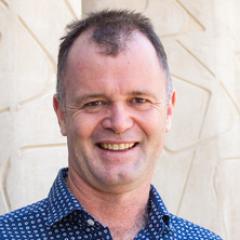Energy-water-greenhouse gas emission nexus of food system in Australia
Duration:
December 2022
Funding source:
Australian Research Council
This PhD research is focused on water-energy- greenhouse gas (GHG) emissions nexus of food systems. The overarching research aim is to analyze the water-energy input reduction and efficiency increase of the food system. As a part of water-energy input reduction and efficiency increase, we are exploring vegetable food system. This is of high relevance for sustainable food supply chain development considering future shift to vegetable-based diet. Our research work is expected to lead to the future development of the vegetable food system with less water-energy inputs, and GHG emissions.
Funding
- The University of Queensland
Collaborators
- University of New South Wales
- The University of Sydney
- TU Delft
- Queensland University of Technology
- Mulgowie Farming Company
Project Outcomes
- Inter-city and inter-economic sector water flow quantification to understand the sector-region combination for strategic city water footprint reduction.
- Understanding water-related energy, economic value of the energy consumed, and GHG emission of the food system of Australia.
- Understanding mitigation options of water-related energy and GHG emission of the food system.
Publications
Papers
- Lam, K. L., Kenway, S. J., Lane, J. L., Islam, K.M.N., & de Berc, R. B. (2019). Energy intensity and embodied energy flow in Australia: An input-output analysis. Journal of Cleaner Production (5-Year Impact Factor: 7.491). Vol 226, 357-368.
- Islam, K.M.N., Kenway, S. J., Renouf, M.A., Lam, K. L., & Wiedmann, T., (2021). A review of water-related energy consumption in the food system of nexus studies. Journal of Cleaner Production (5-Year Impact Factor: 7.491). Volume 279, 123414.
- Islam, K.M.N., Kenway, S. J., Renouf, M.A., Wiedmann, T., & Lam, K. L. (Under review). A multi-regional input-output analysis of direct and virtual urban water flows to reduce city water footprint in Australia. Sustainable Cities and Society Journal (5-Year Impact Factor: 5.143). Ms. Ref. No.: SCSI-D-20-01432_R2.
- Islam, K.M.N., Kenway, S. J., Renouf, M.A., &Wiedmann, T. (Under review). Food-Water-Energy-Greenhouse gas emission nexus assessment in Australia. Applied Energy. (5-Year Impact Factor: 9.086). Ms. Ref. No.: APEN-S-21-05924.
Conference proceedings
- Islam, K.M.N., Kenway, S. J., Renouf, M.A., Wiedmann, T., & Lam, K. L. Direct and indirect water demand, transfer, and net flows in the greater capital cities in Australia. IELab Conference 2020 in conjunction with ALCAS Symposium 2020, 3 to 5 February 2020, Lutanda Mt Victoria conference & recreation centre, the Blue Mountains, New South Wales, Australia.
- Islam, K.M.N., Kenway, S. J., Renouf, M.A., & Wiedmann, T. Water embodied in the supply chain of South East Queensland: Direct and indirect perspectives. 1st Asia Pacific SDEWES Conference 2020, 6 to 9 April 2020, Gold Coast, QLD, Australia.
- Islam, K.M.N., Kenway, S. J., Renouf, M.A., Wiedmann, T., & Lam, K. L. Understanding critical supply chains and final products: An input-output analysis to exploring the energy-water-food nexus in Australia. 7th International Society for Industrial Ecology Asia Pacific Conference and 15th Asia Pacific Roundtable for Sustainable Consumption and Production Conference, Cebu, Philippines, Feb 22-26, 2021.
- Islam, K.M.N., Kenway, S. J., Renouf, M.A., Wiedmann, T., & Lam, K. L. Water-Related Energy Consumption of The Food System: An Overview of Nexus Studies. FOODCONF 2021. The Annual conference on Food Science and Technology (virtual), July 12-14, 2021.
Project members
Other members
- Dr. Marguerite Renouf, Queensland University of Technology
- Professor Dr. Tommy Wiedmann, UNSW

